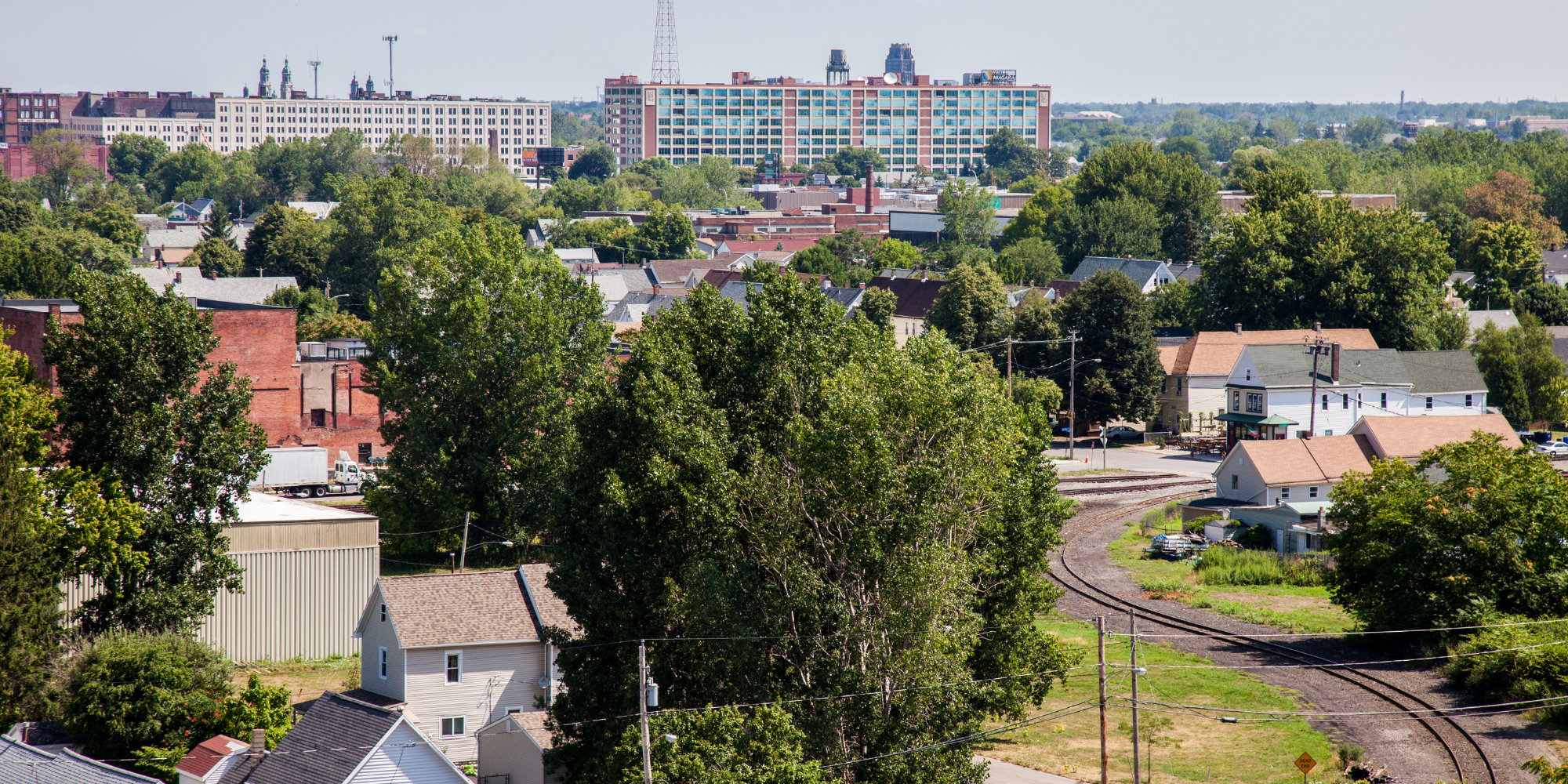In 2019, Buffalo took a big step to rid its city of lead lines by establishing the Replace Old Lead Lines (ROLL) Program. This pilot program was initially funded with $822,000 through state grant initiatives. It enabled Buffalo to replace residential water service lines when those lines experienced a break or leak, and it allowed Buffalo Water to replace lead service lines in approximately 180 homes. ROLL continued to invest over $2 million of operational funds to replace 300 additional lead lines in homes.
Unfortunately, city officials think up to 40,000 homes and 150 miles of lead servicing pipes are still in need of being replaced. Due to Buffalo’s aging infrastructure and housing, local officials estimate the costs to replace 100% of lead service lines to be $350 to $500 million.
In Buffalo, like most cities, lead service lines remain the responsibility of the property owner to replace. Buffalo’s housing market is made up of 60% renters, and the poverty rate exceeds 30%. Low-income residents face realities of household financial burdens while balancing rent, heat, food and water costs. It is imperative that Buffalo, and cities, towns and villages nationwide, are provided the means and authority to fully replace these lead service lines to provide safe drinking water for its residents and protect public health. Substantial funding and appropriate authority are necessary to eliminate the threat that lead service lines present to our most vulnerable residents.
| NUMBERS AT A GLANCE | |
| Population | 254,290 |
| Lead Line Replacement Project Cost | $350-$500 million |
| Single Family Homes Affected | 40,000 |
| Miles of Lead Lines | 150 |
| Cost to Replace Each Home | $10k-$15k (Estimated) |
Buffalo is Keeping its Drinking Water Clean, but Replacement Costs Loom Large :
“While the City of Buffalo’s drinking water is among the cleanest in the nation, lead exposure can also come from lead water lines and lead solders. Replacement of the entire service will not only ensure the continued safety of the drinking water, but it will also enhance residential infrastructure and make it more resilient in the future.”
BUFFALO MAYOR BYRON W. BROWN
How the Lead Service Replacement Project Helps Buffalo
Buffalo continues to protect its most vulnerable from the effects of lead poisoning by optimizing water treatment and eliminating lead service lines, and regulations are in place to ensure that lead service lines are replaced (and not just repaired). Since 2016, Buffalo established an action limit of 5 parts per billion (ppb), which still leads the nation: The EPA average acceptable level before prompting action is 15 ppb.
The presence of lead service lines endangers young children and seniors alike. The city and nation need 100% of lead service lines removed. With 40,000 Buffalo families living in neighborhoods serviced by these legacy lead lines, the need is great and the timeline urgent. A major federal investment to strengthen water infrastructure in the United States will allow cities like Buffalo to replace lead pipes at a much faster rate. This will result in cleaner and safer water.
Cities Are Ready to Rebuild with Congress’ Help
Buffalo’s waterline story is one of the hundreds across the country. From the smallest to largest communities, every community has an infrastructure story to tell, and NLC’s latest Ready to Rebuild report showcases a range of transportation, water, broadband and workforce projects across the country from communities of all sizes that Congress could support with legislation. While projects are different, the message from local officials was the same: infrastructure is a job worth doing, but in most places, it’s now beyond what the local government can handle on its own.
Take Action: Highlight Your City and Why You’re #ReadytoRebuild
Join NLC as we keep calling on Congress to directly invest in local infrastructure and build sustainable and resilient infrastructure in communities. Congress is actively negotiating an infrastructure package so now is the time to share your infrastructure priorities with:
- Your Member of Congress’ staffer in Washington, DC. Use NLC’s pre-drafted letter here, or if you want a staffer’s email from your Member of Congress’ office, just let us know at advocacy@nlc.org.
- Your Senators’ staffers in Washington, DC. Use NLC’s pre-drafted letter here, or if you want a Senate staffer’s email, just let us know at advocacy@nlc.org.
- Take a few minutes to fill out NLC’s Ready to Rebuild form to share your priority projects here.

